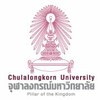Course summaries
To give you a better idea of the classes being taught at FLACSO Argentina, we are providing three examples of class summaries.
Global Public Sphere and Civil Society
This course will deal with two dimensions of the emerging global public sphere and global civil society: The first part of the course will address the theoretical and practical problems derived from the transnationalization of these instances themselves, placing particular emphasis on the implications thereof for the effectiveness and legitimacy of democratic governance at the global level. The second part of the course is aimed at introducing the most burning question posed to the emerging global polity for debate: how to bend the current unsustainable global developmental trajectory towards one that allows all societies and individuals to thrive within the ecological limits of the planet; as well as the main discourses in dispute for providing the answer.
In sum, the purpose of this seminar is to critically address the emergence of a global public sphere and a global civil society from a dual perspective: as a locus of discursive construction of alternative futures or utopias for a sustainable society, on the one hand; and as a regulatory mechanism for the governance of a (proxy-) global polity in the post-pandemic scenario, on the other.
Culture and Identity in Latin America
This course studies a set of influential social and political ideas written by Latin American intellectuals since its independence from Spain and Portugal in the early 19th century until today. Our analysis of these ideas will be centered on: (1) Their formulation of issues of national and regional identity; (2) Their influence in the world at large. The goals of the course are to familiarize students with the way in which intellectuals in the Global South position themselves in relation to dominant ideas coming from the dominant “West”. Problems associated with the degree of originality of these ideas, and their “application” and “adaptation” to other realities and ideal models will be specially considered. At the end of the course, students will be able to understand the driving forces that led to the main debates on social and political issues in Modern Latin America.
Global Economy and Society
This class is divided into three modules, out of which students have to choose two: Understanding Corporate Capture, Natural Resources and Development in Latin America, and Global Media and Citizenship. The objective of the component “Understanding Corporate Capture” is to provide information and documentation for a comprehensive understanding of the corporate capture phenomenon throughout three main analytic pillars: democracy, human rights and tax justice. The purpose is to recognize the different ways the corporate capture harms development and democratic perspectives –mainly in the countries of the South– and to identify policies and mechanisms to mitigate them. The component “Natural Resources and Development in Latin America" discusses the challenges and opportunities that the current mode of globalization presents for Latin America's natural resources and human capital. It examines development debates, agendas, and options for Latin America in relation to natural resources, as well as the relevance of the State and social movements in the current global context. The component “Global Media and Citizenship” seeks to discuss the transformations in media landscapes and citizenship practices with media, describing and analyzing how key actors produce, distribute, share and participate in information flows and set particular agendas. Core themes include the globalization of media in the digital age, media practices and media concentration; the construction of global agendas and citizenship participation in the digital age; and global and local narratives.





